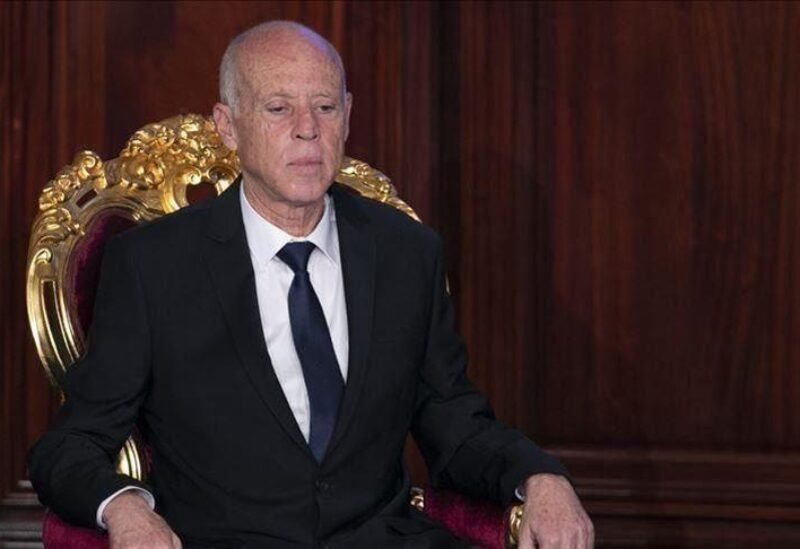
Tunisia's President Kais Saied
As Three Tunisian parties today accused incumbent President Kais Saied of pressuring the judiciary to intimidate political opponents, a Tunisian court sentenced former President Moncef Marzouki, 76, to four years in prison in absentia on charges of “attacking external state security”.
“The systematic violation of rights and freedoms by continuing to try civilians before military courts and putting pressure on the judiciary is an attempt to use it to intimidate political opponents,” said a joint statement by the Democratic Current, the Republican Party and the Democratic Forum for labour and Freedoms.
Last month, Tunisian authorities issued an international arrest warrant for Marzouki over his criticism of holding the International Francophonie Summit in Tunisia on 15 October.
Speaking on France24’s Arabic channel, Marzouki said he tried to prevent the summit from being held in Tunisia as he believed it would support “the coup”, referring to the seizure of near-total power by Saied.
Marzouki, who was president from 2011 to 2014, also accused Saied of dividing the Tunisian people. In response, the Tunisian president threatened to withdraw diplomatic passports from everyone who solicits outside support to “hit” Tunisian interests.
The three parties also condemned “the repeated appearance of bloggers before courts, and the issuance of freedom-restricting verdicts against them.”
They also declared solidarity with blogger Mariem Bribri, “who was sentenced to a shocking prison term,” according to the statement.
On Tuesday, the Court of First Instance in Sfax city slapped Bribri with a four-month jail term and a fine of 500 dinars ($173), in a lawsuit filed by the Internal Security Forces Syndicate for publishing a video clip documenting an attack by security forces on a citizen in the eastern Nabeul province in October 2020.
The three parties expressed their “rejection of the continued convulsive speech of the head of the de-facto authority, his division of Tunisians and his distortion of the opposition and its symbols.”
They also called on “all democratic and civil forces to unite efforts to defend democracy and protect the state from disintegration.”
Saied ousted the government on 25 July, suspended parliament, and assumed executive authority. While he insists that his “exceptional measures” are meant to “save” the country, critics have accused him of orchestrating a coup.
Saied, who began a five-year term in 2019, rejects accusations that he suspended the work of the Constitution, arguing that he took exceptional measures within the framework of the Constitution to protect the state from an “imminent danger.”